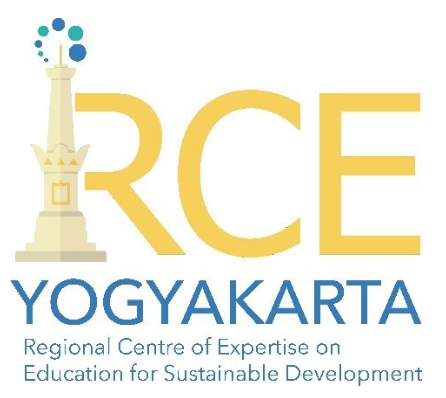
RCE Yogyakarta
 Overview
Overview
Universitas Gadjah Mada (UGM) is a state university located in Yogyakarta, Indonesia. Officially founded on 19 December, 1949. Universitas Gadjah Mada is one of the oldest and largest institutions of higher education in the country. It has been credited as one of the most prestigious universities in Indonesia, comprising 18 faculties and 27 research centres. UGM offers 68 undergraduate, 23 diploma, 104 master, and 43 doctorate study programmes. The university has enrolled approximately 55.000 students, 1.187 foreign students and has 2.766 faculty members and researchers.
UGM, through the Directorate for Community Services, runs RCE Yogyakarta, focusing on Education for Sustainable Development. It was established as a response to the earthquake in Yogyakarta in 2006, with the aim of rehabilitation following the damage post-disaster, as well as to respond to the illiteracy reduction program, supporting Small Medium Enterprises (SMEs), and in line with the University's commitment for a green campus and renewable energy.
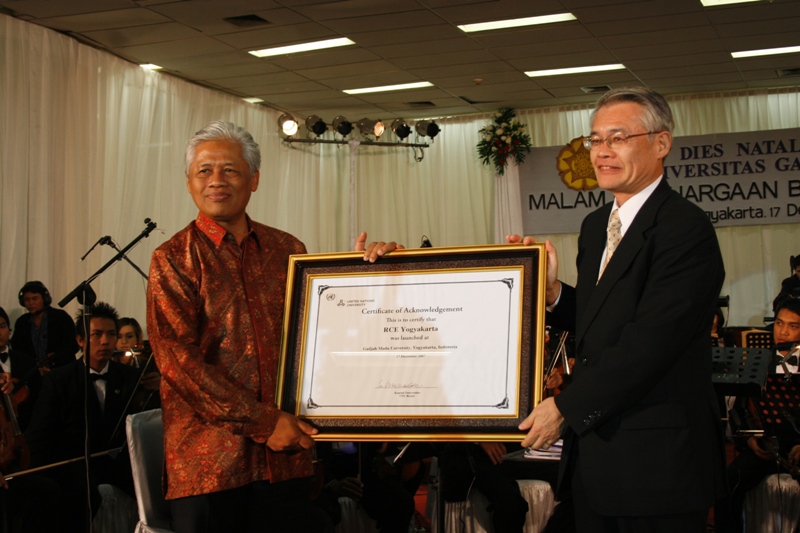
Photo credit: RCE Yogyakarta
RCE Yogyakarta was acknowledged by the United Nations University in 2007. As part of the global RCE network, UGM Yogyakarta is considered to be the local international network for promoting ESD. This is why RCE Yogyakarta has an extensive network that links UGM to the local community, focusing on education for sustainability.
The Special Region of Yogyakarta (colloquially called Jogja) is one of 34 provinces of Indonesia located in the centre of the island of Java, the fifth largest and most populous island in Indonesia. Although Jogja is the smallest province with an area of 3.133 km2, it has a special status since it is governed by the Sultan in the pre-colonial era. Yogyakarta is also the center of Javanese culture, it sits between two famous world heritage sites; Borobudur and Prambanan temples built in the 8th century. There are around 3.1 million people who live in this area of 3,133 km2, about half of them are farmers. The city is located at 7047”S, 110022’E. Being close to the equator, it enjoys the mild monsoonal climate with dry weather from October to April and annual precipitation between 1,700 to 2,600 mm; with temperatures ranging from 26°C to 32°C. Blessed by the volcanic activities of Mt. Merapi, the fertile ground of Yogyakarta supports agriculture and farming as the main source of income for most of the community.
With more than 100 universities, Jogja is also renowned as the city of learning. The rich cultural tradition also makes Yogyakarta a centre of handicraft and small enterprise development. There are more than 85.000 micro- to small enterprises absorbing more than half a million of the workforce and producing handicrafts for domestic and international markets.
Vision: To proactively care for and play roles in saving the world from damage, specifically in the Yogyakarta region.
Mission: To develop concepts and technology that support sustainable development and to implement them with the community.
Aims:
- To provide education in the field of sustainable development through formal, non-formal, and informal education.
- To give information, increase awareness, provide space for learning and action, as well as community towards establishing a nation with further sustainable development.
- Actively involve and play roles in national and international networking to share and collaborate in education for sustainable development
The ultimate objective is to improve community welfare sustainably through:
- Poverty reduction and illiteracy eradication
- Promoting public participation in sustainable development
- To integrate sustainable development with the ongoing post-earthquake disaster reconstruction
Universitas Gadjah Mada, Yogykarta, Indonesia.
Name of organisation: Forum Masyarakat Code Utara
Role: Member
Contact name: Drs. Totok Pratopo
Contact email: totokpratopocode@yahoo.com
Name of organisation: Srikandi Sungai Indonesia
Role: Member
Contact name: Surani Hasanati., S.Si.,M.Sc.
Contact email: surani.hasanati@ugm.ac.id
Name of organisation: Local Government
Role: Partner
Contact name: Ir.Tri Harjun Ismail.,M.Sc.
Name of organisation: Yogyakarta State University
Role: Partner
Contact name: Prof. Sugeng Mardiyono
Contact email: purek1@uny.ac.id
Name of organisation: School River Restoration
Role: Partner
Contact name: Dr.Ing. Ir. Agus Maryono
Contact email: agusmaryono@ugm.ac.id
Name of organisation: RCE Penang
Role: Partner
Contact name: Prof. Munirah
Contact email: munirah@usm.my
Name of organisation: RCE East Kalimantan, Indonesia
Role: Partner
Contact name: Dr. Eko Ernada
Contact email: eko.ernada@gmail.com, rce.eastkalimantan@gmail.com
Name of organisation: RCE Bogor, Indonesia
Role: Partner
Contact name: Dr. Hartisari Hamidjojo
Contact email: info@biotrop.org
Photo credit: RCE Yogyakarta
 Activities
Activities
Student Community Services – Community Empowerment Learning (SCS-CEL)
SCS-CEL is a compulsory course for UGM’s undergraduate students and on offer to overseas undergraduate students to join - participation as a free choice and on the chance of credit transfer. The objective of this course is particularly to raise the student’s empathy and care for poor and environmental problems as well as economy and social issues. This course is run based on the principles of co-creation, co-finance, win-win solution, sustainability and flexibility. SCS-CEL is conducted by a research-based program and using a multidisciplinary approached method. Operationally, the students have to (1) participate in community empowerment activities, including program design and implementation in order to solve the problems of local community (themes are varied according to local needs); (2) social and cultural exchange; (3) involve with the community doing what they normally do in a village and learn about the rural life; (4) introduce new culture (especially origin cultures of foreign students that are usually facilitated by the RCE Yogyakarta network) to the community; and (5) submit the report of activities during the SCS-CEL program to the Directorate of Community Services–UGM.
Photo credit: RCE Yogyakarta
SDGs Center in UGM
The SDGs Center establishment is a continued improvement of management for SDG program and activity (run by all school, centre of studies and directorates), maintaining optimum number and coverage of SDG program activity, increasing impact and sustainability of benefits, and strengthening and enlarging network of synergy. The UGM SDGs Center has been recognised by the Ministry of National Development Planning/National Development Planning Agency/BAPPENAS, Indonesia. The SDGs Center of UGM, which was inaugurated by the Ministry of National Development Planning on 28 August, 2019 in Tara Hotel Yogyakarta, is expected to be able to map all university activities that are in line with SDGs including inserting the SDGs content in courses and Student-Community-Services (KKN), developing campus internal capacity and building a sense of ownership of SDGs, identifying priorities, opportunities, and the Global Action Plan in implementing SDGs, as well as ensuring the internalisation of SDGs into university strategies, policies and work are sustainable. The SDGs Center of UGM is also expected to play a role in supporting the initiation and development of collaborative networking on other universities SDGs Centers in the Java Region in particular, and throughout Indonesia in general. The establishment of the SDGs Center in UGM becomes one of the concerns of RCE Yogyakarta in supporting the SDGs implementation and achievements in Universitas Gadjah Mada and Special Region of Yogyakarta.
International ESD Forum with the theme “The Role of University and Community to Strengthen School Education in Promoting SDGs Implementation”
RCE Yogyakarta recently held an International ESD Forum with the theme “The Role of University and Community to Strengthen School Education in Promoting SDGs Implementation” in University Club Hotel UGM on 12-14 November, 2019. This conference was attended by more than 100 people and consisted of speakers, presenters, and participants from Japan, Thailand, Pakistan, Afghanistan, Namibia, and Indonesia. During the presentations of the speakers and presenters, it was mentioned that ESD allows every human being to acquire the knowledge, skills, attitudes, and values necessary to shape a sustainable future. It means including key sustainable development issues into teaching and learning; for example, climate change, disaster risk reduction, biodiversity, poverty reduction, and sustainable consumption. It also requires participatory teaching and learning methods that motivate and empower learners to change their behaviour and take action for sustainable development. ESD consequently promotes competencies like critical thinking, imagining future scenarios and making decisions in a collaborative way. Thus, together with Shizuoka University Japan and Srinakharinwirot University Thailand, Directorate for Community Services of UGM in collaboration with RCE Yogyakarta hosts the International ESD Forum with the theme “The Role of University and Community to Strengthen School Education in Promoting SDGs Implementation” as part of a responsive role to support community-related with school education.
Photo credit: RCE Yogyakarta
RCE Yogyakarta conducted a Meeting or Sarasehan with Yogyakarta Communities
In order to support the implementation of ESD in community empowerment, RCE Yogyakarta together with the Directorate of Community Services UGM held a meeting or sarasehan with the theme: “Strengthening Commitments with the Community and Schools for a Sustainable Education” at the UGM Central Building on 18-19 September, 2019. The meeting was attended by several parties who were agreed to be able to take an important role in the success of sustainable development such as lectures from several universities in Yogyakarta, deans of UGM, teachers from several schools in Yogyakarta, some principals in the Yogyakarta area, and some communities that are members of NGOs.
RCE Yogyakarta facilitated the visit of University of Groningen to see KKN UGM Activities
As one form of collaboration between UGM and other universities in promoting SDGs, RCE Yogyakarta facilitated the visit of University of Groningen to discuss how to connect the rubber seed research performed by the Groningen research team including Universitas Gadjah Mada, Bandung Institute of Technology (ITB), and Wageningen for Central Kalimantan.
RCE Yogyakarta attended Workshop on Future Expectations for RCEs with ESD for 2030 held by RCE Okayama
The representatives of RCE Yogyakarta, Dr. Rachmawan Budiarto and Dr. Agus Maryono attended the Workshop on Future Expectations for RCEs with ESD for 2030 held by RCE Okayama. In order to discuss how RCE activities could be further developed from the viewpoint of ESD for 2030, UNU‐IAS organised a “Workshop on Future Expectation for RCEs with ESD for 2030” on 23 November, 2019 in Okayama, Japan in conjunction with the “ESD Forum and ESD Okayama Award 2019”, on 24 November, 2019. During the workshop, these were several points that were addressed: How RCE activities should be further developed with the 2030 Agenda/SDGs and “ESD for 2030”?; How ESD/RCE could relate to SDGs?; Ideas on how RCE networks could collaborate together?; and Expectations on added values of the RCE network for the new ESD phase from 2020. RCE Yogyakarta now is trying to design/plan for this.
2019 ProSPER.Net Young Researchers’ School: Ecosystem-based Disaster Risk Reduction and Climate Change Adaptation
Twenty-one participants from across the Asia-Pacific region took part in the 2019 ProSPER.Net Young Researchers’ School (YRS), hosted by Universitas Gadjah Mada, held in Yogyakarta, Indonesia, from 3 - 12 March, 2019. The theme for this YRS, ‘Ecosystem-based Disaster Risk Reduction and Climate Change Adaptation’, provided participants with the opportunity to engage with issues related to Ecosystem-Based Disaster Risk Reduction (Eco-DRR) in the context of the tropics, as well as an understanding of the issues and problems related to hazards and disasters within the context of the UN 2030 Agenda and the Sustainable Development Goals (SDGs). The location for the 10-day School – in Yogyakarta, Indonesia, situated on the ring of fire and in one of the most disaster-prone countries in the world – enabled students to see first-hand a city and community learning to live with disasters over time. Earthquakes, floods, and disasters related to volcanoes are just some of the natural disasters faced in the region. Throughout the programme, students also benefitted from a variety of in-class components (lectures, practical exercises, individual and group assignments, presentations, and discussions).
RCE Yogyakarta's Contribution in Fighting COVID-19 through ESD Action
Responding to the COVID-19 situation, RCE Yogyakarta has been working on a number of activities including raising community awareness on COVID-19 by disseminating information (such as symptoms to look out for) from verified and reliable sources, encouraging batik clothing manufacturers to produce PPE and fabric masks, and looking for alternatives ways to utilise ICT given the disruptions to trade and supply chains. Read more
WhatsApp Groups Help Overcome Lack of Beds for COVID-19 Sufferers in Indonesia
A grassroots movement in one of Indonesia's worst-hit regions for COVID-19 has emerged, to defuse the crisis in health care in the country with hospitals unable to cope with it as the number of patients soars. Last month, Sonjo, a WhatsApp community group in Yogyakarta, a province on the island of Java, utilised their network to help the district government turn a used hospital into an isolation facility to accommodate COVID-19 patients with moderate to no symptoms. While the costs incurred by the government, such as sterilising the Patmasari Veteran Hospital in Bantul Regency and equipping the ward with around 60 beds, volunteer Sonjo helped raise funds for the procurement of personal protective equipment such as protective clothing and masks as well as other medical needs.
Dr Rimawan Pradiptyo, who heads the economy department at Yogyakarta's Gadjah Mada University, said the group was formed in March last year - when Indonesia's first cases were confirmed - to help vulnerable communities cope with the pandemic. With the spirit of "mutual cooperation" volunteers help patients to change hospitals to ensure they get proper care and related hospitals are facing a shortage of protective equipment for manufacturers and suppliers. The isolation facility, known as "resilient shelter" is the latest in a long line of self-help initiatives by the group, which has grown to more than 1,500 members spread across 14 WhatsApp chat rooms, so far Gadjah Mada University has distributed assistance in the form of beds in 45 shelters in 41 villages in 16 sub-districts.

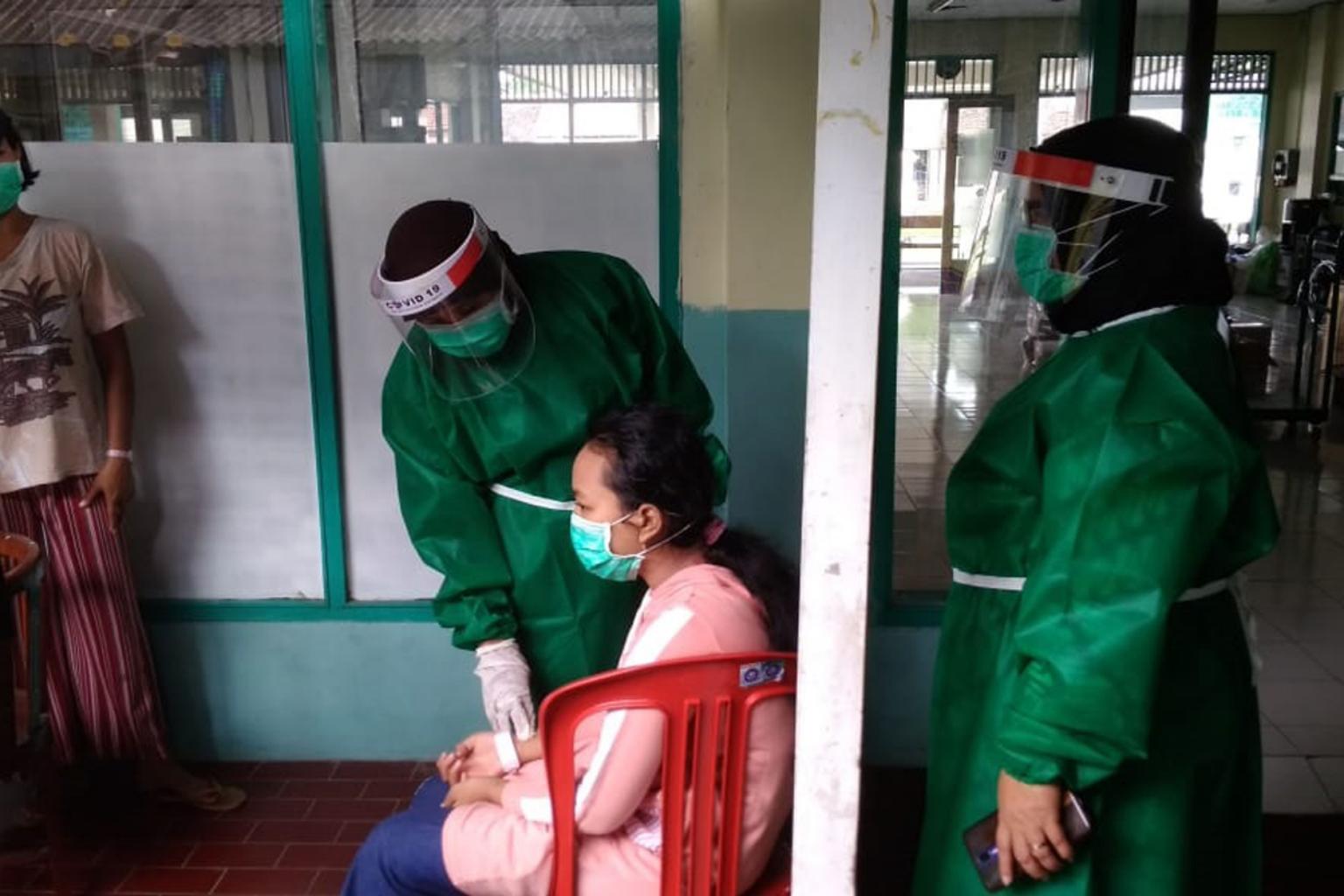
(Photo credits: RCE Yogyakarta)
Delegation from RCE Yogyakarta, UGM attended the Monitoring and Quality Assessment Meeting & Workshop on ICT Implementation in ESD-Based Learning in Athens, Greece
The quality of a country's education is closely related to the quality of its human resources. Even more deeply, education is the focus of the Sustainable Development Goals (SDGs) or what we are more familiar with as the SDGs. Efforts to develop a country's TPB are also strongly influenced by the development of science and technology, including developments in technology and communication (ICT). In other words, optimal use of ICT, especially in learning, can help the state in accelerating TPB support. The availability of easy access to information without space and time limits is very much needed by the younger generation in dealing with the challenges of the SDGs era.
Gadjah Mada University as a National Higher Education Institution has an important role in the integrated TPB effort in the teaching and learning process in schools. In addition, UGM must be able to become a partner of the central and regional governments as well as other stakeholders in monitoring and evaluating the implementation of TPB. University cooperation with Primary, Secondary, and Higher Education is one of the keys to driving TPB, which is implemented through community service activities.
To support this role, UGM, through the Directorate of Community Service (DPKM), is part of the ICT-enabled In-service Training of Teachers to address Education for Sustainability (ICTeEfS) Team. This team consists of seven partner universities in the Southeast Asia region, namely Indonesia (UGM and UPI), Malaysia (OUM, USM, and UTM), and Vietnam (Ho Chi Minh International University and USSH). The ICTeEfS project is coordinated by Prof. Dr. Vassilios Makrakis, at Frederick University, Cyprus with the University of Crete and RCE Crete. ICT aims to expand the use of Information Technology in the learning and internalisation of ESD and SDGs in subjects at the elementary school (SD-SMP), secondary (SMA), and university levels.
Furthermore, this ICTeEfS project invited the seven partner universities to evaluate, coordinate, and present progress reports (Meetings & Workshops on Quality Monitoring and Assessment), from 29 May, 2022, to 6 June, 2022. The detailed agenda is divided into four sessions, which include: (1) Implementation of ICTeEfS Pre-Service Course & Presentation of Papers for Dissemination; (2) Implementation and Results of ICTeEfS Teacher Training; (3) Financial and Administrative Issues; and (4) Socialisation and Publication Activities.
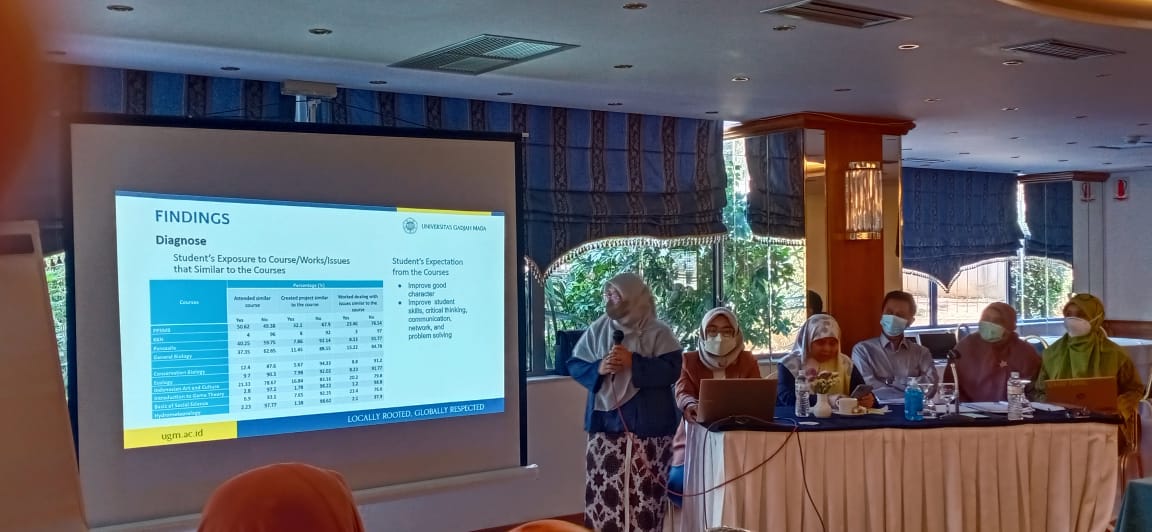
Photo credit: RCE Yogyakarta
RCE Yogyakarta attended the 14th Asia-Pacific RCE Regional Meeting 2022, 'Empowering Local Wisdom for Education for Sustainable Development'
On 19-21 July 2022, the 14th Asia-Pacific RCE Regional Meeting was held in Kuala Lumpur, Malaysia, hosted by RCE Greater Gombak and International Islamic University Malaysia (IIUM), under the theme 'Empowering Local Wisdom for Education for Sustainable Development'.
The three-day meeting was attended by Prof. Ir. Irfan D. Prijambada., M. Eng., Ph.D. (Director of Community Service UGM) and Ardhya Nareswari.,S.T.,M.T.,Ph.D. (Head of Sub-Directorate of Community Empowerment UGM) in the meeting, with the rich history and culture shaped by indigenous knowledge and enhancing values - especially their distinct identities in spirituality, ethics, and communal activities - to take a holistic approach to sustainable development by involving various stakeholders. 70 people attended the meeting in person, including members of 12 RCEs and local partners. Some sessions were held in hybrid mode, with around 50 people from 20 RCEs participating virtually.
In his keynote speech, Prof. Emeritus Tan Sri Dzulkifli Abdul Razak (Prof. Dzul), IIUM Chancellor and Co-chair of RCE Greater Gombak, spoke about the importance of diversity and human-based education based on collaboration. He also underlined the important role of RCEs in linking knowledge and practice in sustainable development to the realisation of society as a whole.
Coaching Social Community Branding and Promotion Strategy
On 28 July, 2022, after the global and post-COVID-19 conditions in Indonesia had subsided, and face-to-face activities were allowed directly, RCE Youth Yogyakarta held the first coaching with the theme 'Branding Strategy and Social Community Promotion' with resource person: Aria Sungsang Nir Prahara, S.T.. The activity began with a speech from Prof. Ir. Irfan D. Prijambada., M. eng., Ph.D. (Director of Community Service UGM), then guided by Atrida Hadianti., S.T., M.Sc., Ph.D. (as Coordinator of RCE Youth Yogyakarta), moderated by Bachtiar Arif Pambudi (as Secretary of RCE Youth Yogyakarta), and facilitated by Azri Faisal Nabhan., S.S., M.M. ( DPkM UGM). It is hoped that from this coaching, the community can immediately recover and bounce back to go forward to develop new innovations for sustainable development goals, through branding strategies and concerns in each area of the RCE Youth Yogyakarta community that they are engaged in, and is expected to be able to boost problem-solving / problem-solving global issues that exist. The event also held discussions led by the Head of the Sub-Directorate for Community Empowerment of DPKM UGM (Ardhya Nareswari., S.T., M.T., Ph.D.). The Head of the Sub-Directorate for Community Empowerment said that as agents of change, the younger generation must have a more sensitive and active sense to work together with the community to implement ESD for sustainable development.
RCE's Online Program Empowers Student Leadership in the SDGs through Intergenerational Learning and Knowledge Transfer Cooperation with USM Penang (RCE Penang), RCE Yogyakarta, RCE Tongyeong
On 27 August, 2022, RCE Yogyakarta, Gadjah Mada University collaborated with RCE Penang (USM Malaysia) and RCE Tongyeong (South Korea) to conduct an online webinar with participants from several countries, with more than 50 participants participating in this program online. RCE Youth Yogyakarta, Gadjah Mada International University was highlighted by postgraduate students majoring in American Studies Relations at Gadjah Mada University, by presenting about SDG 4 (Quality Education), RCE Penang (USM Malaysia) presenting SDG 3 (Good Health and Well Being), while RCE Tongyeong presented about SDG 15 (Life on Land). Discussions and sharing of experiences were carried out in this webinar, as were strategies for implementing the program so that the program could run continuously.
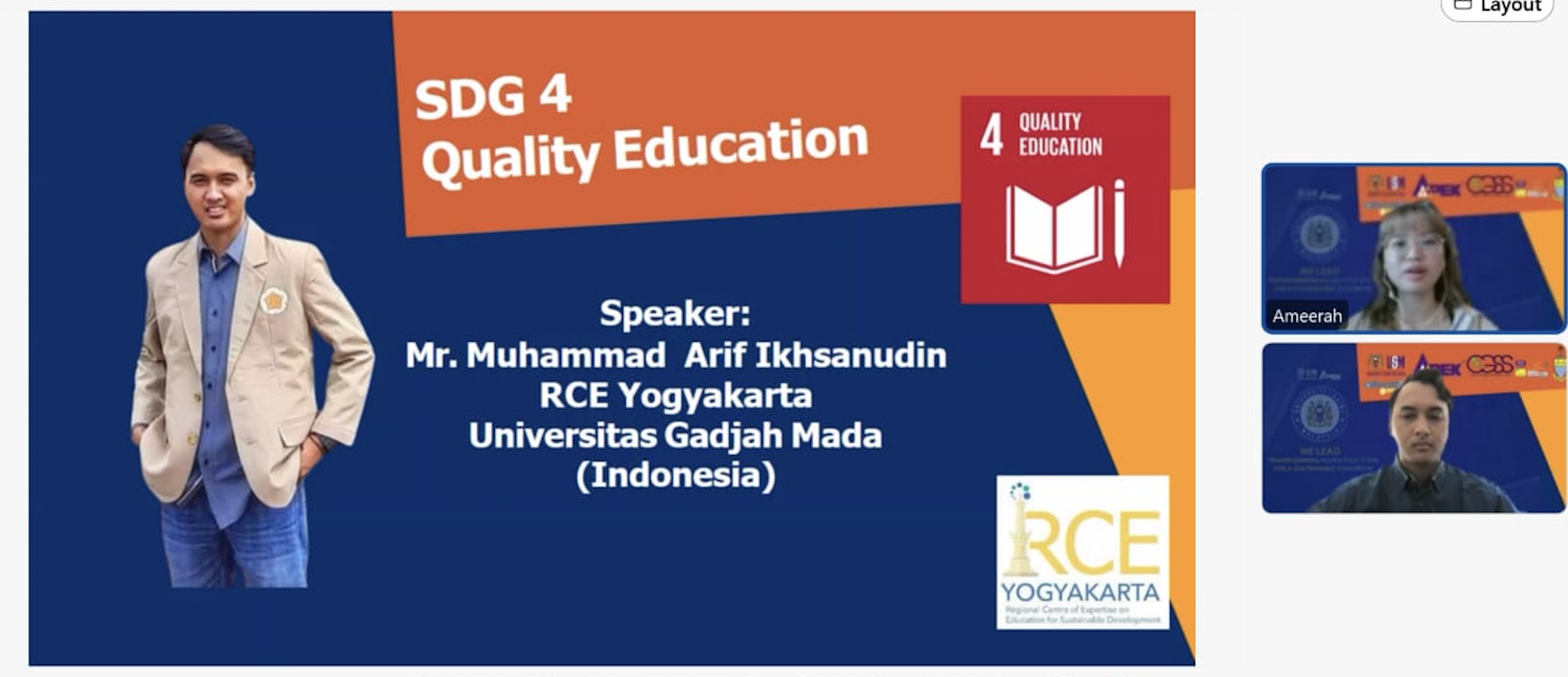
Workshop and Expo RCE Yogyakarta : "Strategy for Implementing Education for Sustainable Development (ESD) in order to support the Sustainable Development Goals (SDGS)
On 28 October 2023, it was Indonesian Youth Pledge Day. In cooperation with several youth communities in Yogyakarta, RCE Yogyakarta organised workshops and expos under the auspices of the Directorate of Community Service - UGM. This year's theme for the RCE Yogyakarta Workshop and Expo is 'Strategy for Implementing Education for Sustainable Development (ESD) in order to support the Sustainable Development Goals (SDGS)'.
The goal of this initiative is to increase public awareness of ESD and its relevance to a sustainable future, particularly among youth. Along with community exhibitions for young people who are members of RCE Youth Yogyakarta, like Sayur Sleman, Go English, Kaca Cakrawala Giwangan, Marginal School, Desa Apps, Bumi Scholar, Desamind_id, and Difapedia, the series of events also includes seminars, pitching competitions, and SDG's video vlogs.
Photo credit: RCE Yogyakarta
- The ICT-enabled In-service Training of Teachers to Address Education for Sustainability [ICTeEfS] through Capacity Building in the field of Higher Education which is funded by the European Union from 2018-2020.
- The Centre for Development of Sustainable Region (CDSR) which is funded by USAID Sustainable Higher Education Research Alliances (USAID SHERA) from 2017-2021.
- Program in Integration of Education for Sustainable Development (ESD) Conception in Curriculum for Higher Education, Teacher Education, and Community Services in Indonesia (SEAMEO-UNESCO Bangkok). Development of a Framework for the Local Implementation of the SDGs (ProSPER.Net Joint Project 2020).
- ESD Okayama Award 2016 Global Prize: Gadjah Mada Universitas the first secretariat or host for the Indonesian River Restoration Movement.
- RCE Recognition Awards 2012: Biodiversity and Conservation of Indonesian Medicinal Plants: Sustainable Use and Standardization Project; “Sustainability Village” : A Pilot Project for a Socially Constructed Technology as the Foundation of a Sustainability Way of Living in Harmony with Nature; An Integrated for Social-Economic Recovery Post Merapi Eruption Project; Demo Plant on Biogas from Fruit Waste: Towards an Effective Connection and Learning Process of Multistakeholders in Sustainable Resource Recovery Project; Kampong Upgrading and Greening: Enabling and Learning Processes for Consolidation-based Urban Settlement Redevelopment Project; Preparing Green Economics Through Synergy Among Courses in Engineering Physics Gadjah Mada University Project.
- RCE Recognition Award 2018: Outstanding Flagship Project, Asia Pacific SDG Youth Challenge 2018.
- Certificate of Acknowledgement: Sustainable Development Goals (SDGs) Center was launched at Universitas Gadjah Mada by Ministry of National Development Planning/National Development Planning Agency/BAPPENAS, Indonesia.
Photo credit: RCE Yogyakarta
 Projects
Projects
 Communication Channels
Communication Channels
 Contact Details
Contact Details
rustamajifarklin@ugm.ac.id
aminsusiatmojo@ugm.ac.id


